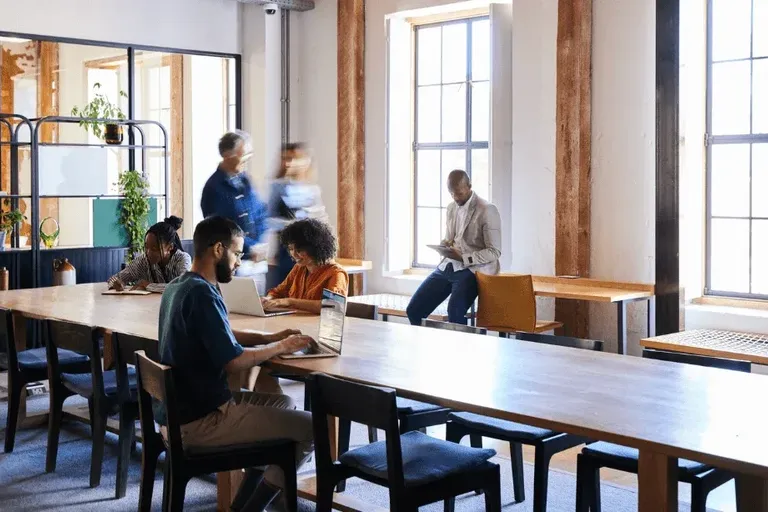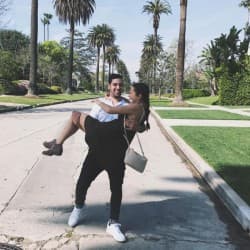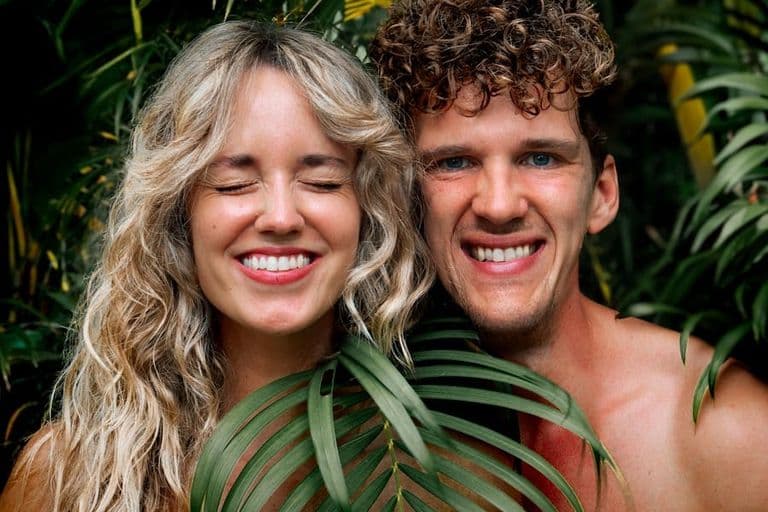How to Become a Digital Nomad as a Blogger
Explore the journey of becoming a digital nomad blogger, from honing skills to balancing work and travel adventures.
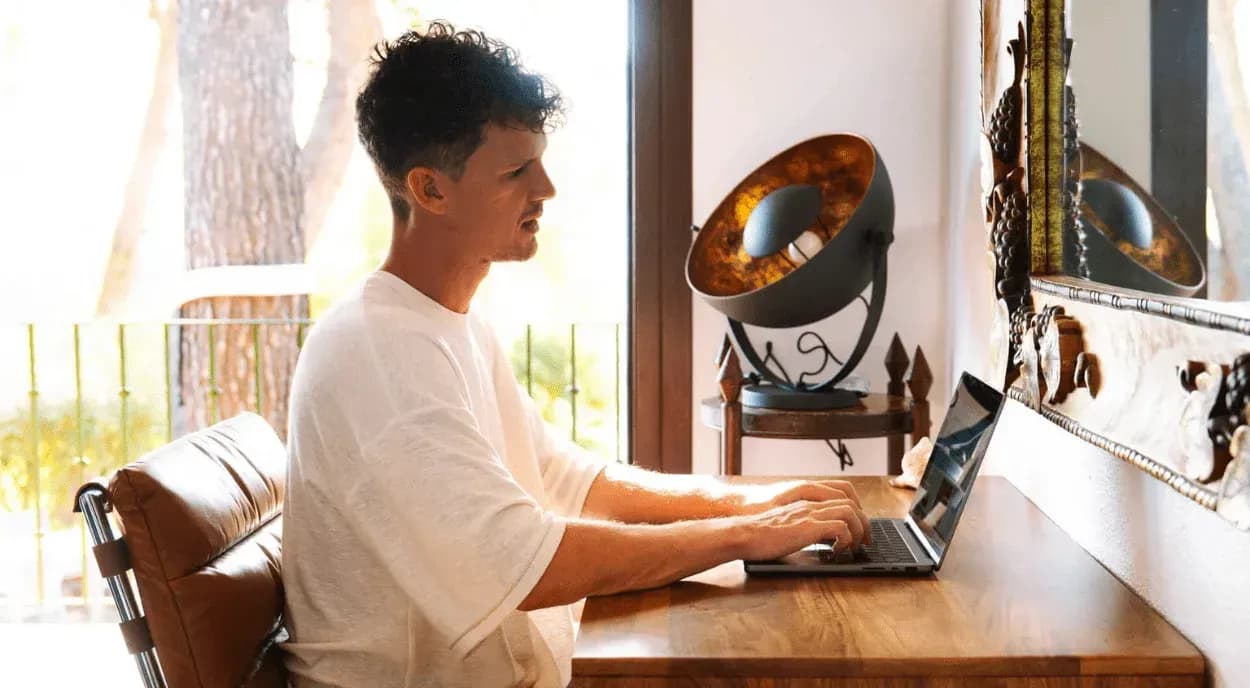
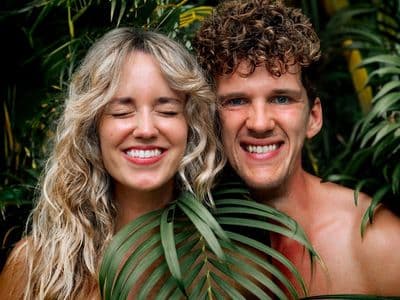
Dreaming of how to become a blogger — working remotely from a beachside bar, as you make money from writing stories or sharing your expertise? While there might be more to being a digital nomad blogger than this, we’re here to show you how you can fund your travels full-time!
We’re Nick and Hannah from Salt in our Hair and Salty Academy, two travel bloggers from the Netherlands. We’re passionate about blogging and how it can change your life; it’s allowed us to have a location-independent lifestyle, meaning we can travel the world and make money simultaneously! What started as a passion project alongside our travels is now a 7-person business reaching millions of readers, and earning 5-figures monthly.
So, you want to learn how to become a blogger? In this guide, we’ll walk you through the steps we took to get here, so you can do the same to become a profitable, full-time digital nomad blogger.
Why Blogging Is a Great Digital Nomad Job
Blogging as a digital nomad has endless benefits and possibilities! Aside from the fact that you can work from anywhere you want, here are some of the top advantages.
Flexible Hours
Being a blogger and a digital nomad means you can set your own hours, giving you greater autonomy over your work. Particularly for us as travel bloggers, this is really important as we’re often away traveling and working on partnerships with destinations. This means we can do sunrise photo missions in the morning and catch up on work in the afternoon.
Passive Income
The benefits of blogging when it comes to passive income are massive! You can create digital products, implement affiliate marketing or ads, and make passive income while you continue your travels.
Sharing Your Expertise
Blogging, whatever the niche, is the best way to share your experience with your unique audience. We love sharing our journey, photos, and tips with our followers, and seeing how they’re inspired to do the same!
Long-Term Opportunities
Having a blog is like your very own public portfolio for everyone to see. While this means regularly maintaining and improving it, you can continuously attract new readers. These readers might be interested in long-term opportunities with you; for example, a brand deal or a product partnership. In our case, we regularly attract new tourism boards from our blog, who want to invite us to showcase their destination.
How to Become A Blogger: Step-by-Step
We’ve been where you are. Starting your blog can feel overwhelming, especially when there’s no handbook on where to start. From our experience, it’s best to begin by following these preliminary steps.
Step 1: Find Your Niche
What is the most important foundational step of learning how to become a blogger? Determining your niche! You need to consider your specialty or expertise, and how you can communicate that to readers. As the blogging world gets bigger, it’s better to niche down as much as possible to stand out from other players in the industry.
Example: Initially, we had to really think about how to become travel bloggers (successfully), particularly as it’s such a general niche. However, we niched down by focusing on travel couple content. We create visually-pleasing travel guides that accompany our Instagram inspiration, which is a more unique offering in the industry.
Remember, there are so many potential niches you could choose. For example, the list is endless: a dog-friendly travel blog, a cooking blog with recipe inspiration, or a craft blog sharing home decor ideas!
Step 2: Determine Your Target Audience
Knowing your audience is crucial for the next steps of your blog, as you’ll craft your blogs and other digital products/services around their needs. For example, our audience is travelers between the ages of 25 and 35, with a mid-range budget, so we align our offering to fit their needs. This helps us create meaningful connections!
Start by sitting down and crafting your audience avatar. Give your avatar a name, age, location, and start asking hard-hitting questions like: ‘What problems does my audience face?’ and ‘How will my blog help them?’.
Step 3: Choose Your Platform
Once you have your niche and audience, it’s much easier to decide on the platform you want to focus on for your blog and promotion needs.
First, you’ll choose your CMS, a software application that helps you create, manage, and publish content. The CMS system you use (WordPress, Squarespace, etc.) for your blog will depend on your preference. We use (and recommend) WordPress; it’s excellent for first-time bloggers and digital nomads!
Additionally, you’ll need to promote your blog on social media platforms such as Instagram, TikTok, YouTube, and Pinterest. It’s better to focus primarily on 1-2 platforms; the ones where you see your audience are most active.
Step 4: Build Your Brand
Building and maintaining a consistent brand image is super important! This is the fun visual stuff, such as designing logos and choosing brand colors. This will form the backbone of your brand (potentially forever!), so it’s worth spending a bit of extra time getting this right. Remember, your colors and images should evoke who you are and what you’re trying to achieve.
Step 5: Write Your First Blog Posts
Map out a plan for your first set of blog posts. These initial posts should be pillar content for your website that you can build on. For example, if you have a cooking blog, you could start with more general listicle articles such as ‘The 10 best 30-minute dinner recipes’ — blogs that will have the longevity to remain popular with old and new readers.
Step 6: Promote!
A key part of learning how to become a blogger is knowing how to promote your work. Once you’ve written and published your guides, don’t forget to advertise them! You can use appealing visuals and well-crafted captions through social media platforms like Instagram or Pinterest. Remember to have a compelling call to action to direct the viewer easily to your blog.
Step 7: Monetize
As you grow your blog, you’ll want to start thinking about monetizing and making some passive income from your hard work! Focus on affiliate marketing or ads within your content, or consider what digital products you could create. You may have to invest your time in integrating these steps, but it’s well worth it in the long run.
Learn how to become a blogger by signing up for our Blogging Masterclass. We’ll teach you the ins and outs of monetizing your content, including workshops with leaders in the industry!
How to Become a Blogger: Tips for Remote Work
I spent years learning how to become a travel blogger, so I could work remotely and have the freedom to travel the world. It really is a dream come true!
When we first started, we ran into problems working on the go: glitchy wifi, annoying IP address issues, timezone meeting clashes — you name it, we experienced it! For this reason, a digital nomad must have the tools and equipment needed to work and travel simultaneously.
Remote Tools List
We recommend bringing/purchasing:
- VPN
- Cloud backups
- Portable hard drive
- Universal power adapters
- Wifi dongle
- An eSIM that has a good data package
- Noise-cancelling headphones
- Battery pack
- Any other equipment you may need (in our case, cameras, lenses, and a drone)
Answering Your Questions
Q: How do I become a blogger with no money?
It is possible! However, there may be some limitations initially. Free CMS platforms exist, but we recommend buying a domain and good hosting for the best results.
Q: How can I become a paid blogger?
It took us a while to start making money, but we could grow quickly once we had some income streams. You can use various methods, such as affiliate marketing, sponsored content, digital products, ads, memberships/subscriptions, and partnerships.
Q: How long does it take to make money blogging?
Most bloggers take 6–12 months to see consistent income, depending on the time you can put in. When we first started, we were working our 9-5 jobs alongside, so it took us a couple of years to make the initial leap into blogging full-time.
Q: How do I become a blogger if I’m not tech-savvy?
While having technical know-how (I’m a web developer by trade) is helpful, you don’t need to be technical to start a blog. Most platforms are beginner-friendly, and you can learn as you go. We teach the technical part of starting a blog, including the basics of coding, in our Ultimate Blogging Masterclass!
Q: What if I have no audience yet?
We started at zero and are so proud of where we are now! There’s no reason that you can’t have the same success! Focus on creating helpful content for your niche; your audience (and income) will grow over time.
Learn how to become a blogger by joining our ultimate blogging masterclass. In the course, we include templates, workshops with leaders in the industry, and partner discounts. You’ll also join a passionate community of fellow bloggers on the same journey!
Are You Ready To Become a Digital Nomad Blogger?
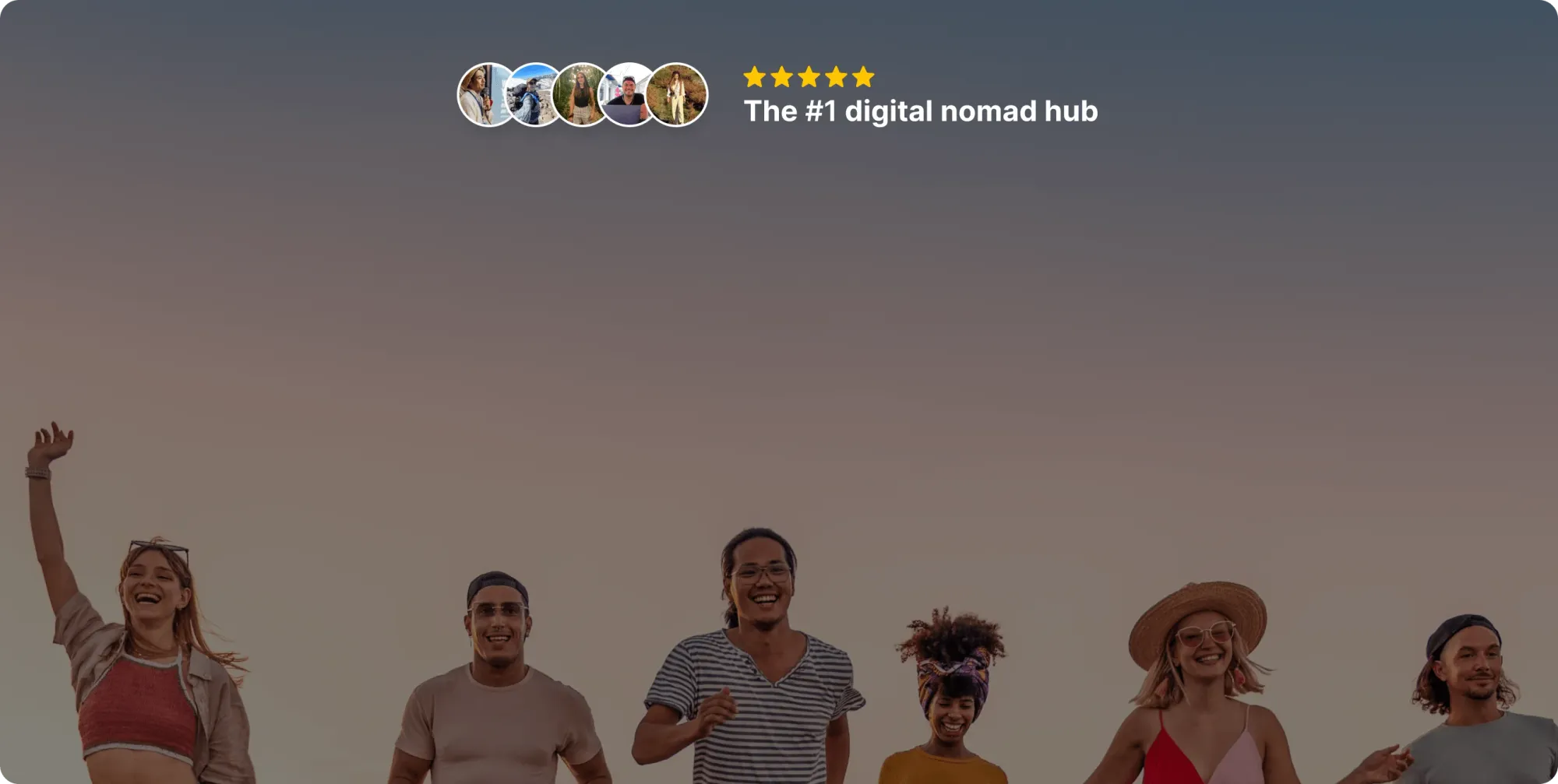
Join our global
digital nomad community
Join us for free
Freaking Nomads is supported by you. Clicking through our links may earn us a small affiliate commission, and that's what allows us to keep producing free, helpful content. Learn more
Read Next


Top Digital Nomad Visas in Schengen Countries

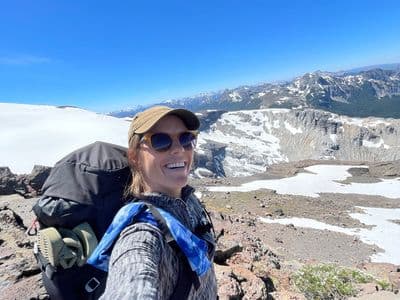
VirtualPostMail Review: My Honest, Hands-On Experience
